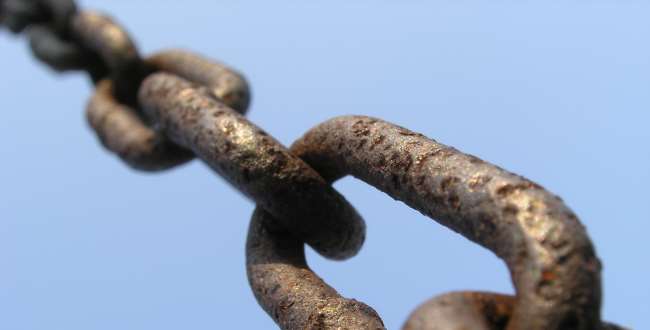Yom HaShoah
Pirkei Avos, the Ethics of the Fathers, is traditionally studied in the weeks between the holidays of Pesach and Shavuos. This tractate, which contains teachings relating to ethics, character, and proper behavior, begins with a unique introduction. The first Mishna states: “Moshe received the Torah at Sinai and transmitted it toYehoshua, Yehoshua to the Elders, and the Elders to the Prophets, and the Prophets to the Men of the Great Assembly.”
This Mishna is carefully worded to impart a number of lessons. “Moshe received the Torah,” the Mishna states. Why does it not say that Moshe was given the Torah at Sinai? The Maharal answers this simply. Moshe alone was not given the Torah at Sinai. The entire nation of Israel was given the Torah at Sinai. The entire Torah, from detailed laws concerning when animals are Kosher, to specific codes of conduct regulating business activities, to the ethics contained in Pirkei Avos, all belong to the entire nation of Israel. The Mishna cannot say that the Torah was given to one specific person, as that is not the case. It is for the entire nation or Israel to call their own and to cherish. However, Moshe did receive the Torah. He inculcated the Torah into his life, and absorbed the Torah into his being. Because he received it, he was then able to transmit it, to his brother Aharon, to his student Yehoshua, and to all of the nation.
Why was Moshe successful in transmitting the Torah, ensuring that it would be passed down to the next generation? The Mishna says Moshe received the Torah at Sinai. The Mishna could have said that Moshe received the Torah from G-d. However, the author of the Mishna chose instead to state the location of the giving of the Torah. The reason for this, according to the writings of Rabbi Nachman of Breslov, is that Mount Sinai was chosen to be the site of the giving of the Torah for a specific reason. Our Sages have taught that there was disagreement among the mountains as to which one was worthy enough to be the site of the giving of the Torah. Only Mount Sinai felt it had no legitimate reason to be the site of this monumental event. It was a small mountain, and it therefore humbly bowed out of the “competition.” Because of the humility of the mountain, Hashem chose it for the site of the giving of the Torah.
Moshe, the Torah tells us, was the humblest of all men. Moshe realized when he received the Torah that it was not for him to cherish solely. He realized that whether he was worthy or not, he was now the one responsible for teaching the Torah to the entire people. His humility told him that he was not suited for the job. However, it was given it to him, nonetheless. Therefore, Moshe had to teach the Torah with all his might, assuring that all of the Torah was taught, that every small detail was covered, and the importance of all minutiae stressed. Moshe, and specifically Moshe, received the Torah at Sinai – the site which epitomizes humility. Because he, the humblest of men, received the Torah at the site which is an everlasting lesson in humility, he was able to properly transmit the Torah to the entire nation of Israel .
Yet, we find later in Pirkei Avos that the language of “transmission,” “Mesorah,” is not used. The Mishna states by each Sage that he “received,” “kibel,” from the Sage who preceded them. Why was the language of how the Torah and its lessons were taught from generation to generation changed? The Maharal explains that the verb to describe the learning process was selected to reflect positively on the one who is the subject of the action. Moshe did a proper job of transmitting to Joshua, and therefore the use of the term “transmit” is appropriate. However, in later generations, there was something lacking in the transmission process. However, there were individuals who “received” the Torah from their teachers properly. It is these individuals who taught lessons which they felt would be of benefit to their generation, which did not “receive” the Torah in its entirety from their teachers. It is the lessons of those who “received,” those who because they understood the importance of Torah to the nation of Israel tried to spread the growth of Torah knowledge and study, that are recorded in Pirkei Avos.
Yom HaShoah, Holocaust Remembrance Day, is April 13, 1999. During the Holocaust we lost a generation of teachers and students. We lost a vital link in the transmission of the Torah. The Torah, as Pirkei Avos tells us, belongs to the entire nation of Israel. Every individual should have the opportunity to study it, delve into it, become familiar with it, and appreciate it. There are those of us who luckily have received the Torah. Despite the loss of fathers and mothers, the teachers, and their children, the students, we were fortunate to receive the Torah. There are many of our brethren who were not so fortunate. They are not familiar with the Torah. Pirkei Avos tells us how we are to respond. If we were fortunate enough to receive the Torah, we must faithfully transmit it to others so they can study it as well. It is not enough that some of these people may “receive” the Torah. We must do our best to create an informed generation, so that it can be said that we _transmitted_ the Torah, they we did our best to teach our brothers and sisters the Torah, and we did it successfully. We tragically lost an incomprehensible amount of teachers and potential teachers. To perpetuate the memory of those we lost, we should faithfully attempt to educate our sisters and brothers about that which they do not know, the Torah.


